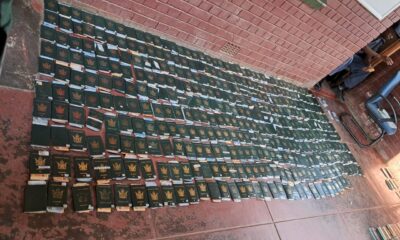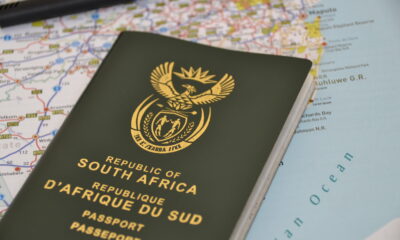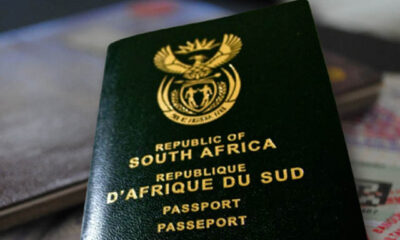News
South Africa Clears 153 Palestinian Travellers after Immigration Checks Raise Concerns

A routine arrival becomes a headline
When a chartered flight from Nairobi touched down in Johannesburg this week, officials expected another standard immigration process. Instead, the arrival of 153 Palestinian travellers immediately drew national attention, fuelled by claims, confusion, and a rush of speculation online.
South Africans woke up to rumours that the group was seeking asylum, that they had been improperly assisted into the country, and that the government had intervened behind the scenes. By midday, Home Affairs Minister Leon Schreiber provided clarity that cut through the noise.
What actually happened at the airport
According to Schreiber, every traveller went through Border Management Authority processing as required. During routine checks, officials noticed missing departure stamps, incomplete accommodation information, and a lack of return tickets among some passengers.
Although South Africa grants holders of ordinary Palestinian passports a 90-day visa exemption, normal entry requirements remain in place. This includes proof of travel plans and documentation that shows visitors will not be left destitute in the country.
Schreiber confirmed that all 153 individuals carried valid passports. He also stated that none of them had applied for asylum in South Africa. DIRCO echoed this position and said it had no indication that any refugees had entered the country.
Claims, confusion, and the role of humanitarian groups
The situation unfolded quickly on social media after Gift of the Givers suggested that senior government officials had intervened to secure entry for the group, despite some documentation gaps. Their statement linked the incident to South Africa’s political stance on Palestine and its international legal actions against Israel.
This added another layer of public curiosity. People debated whether the travellers intended to stay, whether they were escaping conflict, and whether the state had bent its own rules.
To prevent misinformation from growing, authorities contacted the Palestinian embassy for clarification. Embassy officials noted that the group had been misled by an unregistered organisation that facilitated their travel without meeting proper requirements. They emphasised that the documentation gaps did not indicate an intention to remain in South Africa permanently.
Humanitarian consideration and final clearance
While verifications continued, the group waited in air-conditioned buses at the airport. Once officials confirmed that the travellers would not be left vulnerable in the country and that none were seeking asylum, they were cleared to enter under the usual 90-day visa exemption.
By the time clearance was granted, twenty-three members of the group had already departed for other destinations.
What happens now
Home Affairs is now working with law enforcement and diplomatic partners to determine whether the organisation that facilitated the travel acted unlawfully. The Palestinian embassy has publicly condemned the entity for exploiting families during a humanitarian crisis and for arranging travel in an irresponsible manner.
Schreiber’s department has stressed that South Africa’s visa exemptions do not override basic entry requirements and that every foreign national must still comply with immigration law.
A moment that showed how quickly rumours grow
In a country where immigration, asylum processes, and international politics often spark intense debate, this incident shows how rapidly confusion can spread. What began as a routine flight became a national talking point within hours.
Yet the confirmed facts remain simple. The travellers entered legally. None applied for asylum. Verification was completed. Humanitarian grounds guided the final decision.
South Africans now wait to see whether investigations will uncover wrongdoing by the group that organised the journey.
Follow Joburg ETC on Facebook, Twitter, TikT
For more News in Johannesburg, visit joburgetc.com
Source: IOL
Featured Image: Yeni Safak English – Yeni Şafak



























